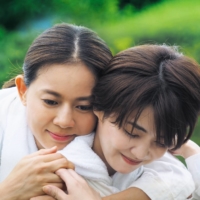“Miserabilist cinema” sounds like a pejorative term, as in “movies that wallow in misery,” but it can be an honest description. Some films, the good ones included, focus on characters in the throes of hopelessness and despair — that is, people experiencing the misery of existence to the brim.
One of their makers is Nobuteru Uchida, whose debut feature “Love Addiction” (2010), a drama about a turbulent love quadrangle, won the Tokyo Filmex festival’s Grand Prize.
His latest, “The Women,” inflicts so much awfulness on its protagonist that it starts to feel like directorial sadism. Or, like a contemporary Japanese version of the biblical Book of Job, minus God.
| Rating | out of 5 |
|---|---|
| Run Time | 97 mins. |
| Language | Japanese |
| Opens | June 1 |
Similar to that tale, pity is in short supply, though a kind of redemption is achieved. The ending feels a bit too convenient, somewhat like God gifting poor Job with new property, new children and a long life after allowing his existence to become a living hell. But at least it lifts the film out of the “dreary downer” category.
The protagonist, Misaki (Yukiko Shinohara), is barely hanging on as the story begins. Her mother, who has been disabled by a stroke, requires constant attention, complains about everything and never misses a chance to undermine Misaki’s fragile self-esteem. She finds relief in the arms of her fiance and Mom’s caregiver, Naoki (Shunsuke Kubozuka), and friendship in Kaori (Kana Kurashina), a beekeeper with a knowing, self-contained air — the opposite of the needy Misaki, whose face registers every tremor of emotion.
She also works part time at a children’s day care center, giving her welcome time away from her mother’s incessant demands, though the job is hardly easy for someone so nervous and insecure.
Then, without explanation, Naoki stops showing up. A new caregiver, Maryam (Sahel Rosa), takes his place and tries hard to please, but Misaki is distraught. This is only the first in a series of calamities that leave her feeling abandoned, bereft and sliding into despair.
The story is set early in the COVID-19 pandemic, so Misaki wears a small cloth face mask at work, but it keeps slipping from her nose and seems to symbolize her unsteady state of mind. Other than that, the coronavirus remains in the background, while raw emotions take the foreground.
Flashbacks, dropped into the narrative with a disorienting suddenness, give us glimpses of Misaki’s recent past, but backstory details, such as the fact that Misaki and Kaori have known each other since childhood, are scant for much of the film. All this makes the insults and disasters heaped on Misaki seem all the more savage.
Playing this much-put-upon character, Shinohara doesn’t angle for sympathy. Rather she shows, with terrifying clarity, how quickly a veneer of normality can crumble into desperation, hysteria and a full-on meltdown. Misaki is flawed, as her mother relentlessly points out, but she is also hit by a tsunami of bad fortune.
The film is infatuated with the sort of romantic death portrayed in John Everett Millais’ famous portrait of “Ophelia,” though the victim clutches a wine bottle, not wildflowers. But it also delivers a real catharsis, akin to marveling at the sunshine after surviving a brush with death. Will the euphoria last? In that moment, with the blue sky overhead and, if you’re lucky, a friendly face before you, it’s enough.
In line with COVID-19 guidelines, the government is strongly requesting that residents and visitors exercise caution if they choose to visit bars, restaurants, music venues and other public spaces.
In a time of both misinformation and too much information, quality journalism is more crucial than ever.
By subscribing, you can help us get the story right.
SUBSCRIBE NOW



